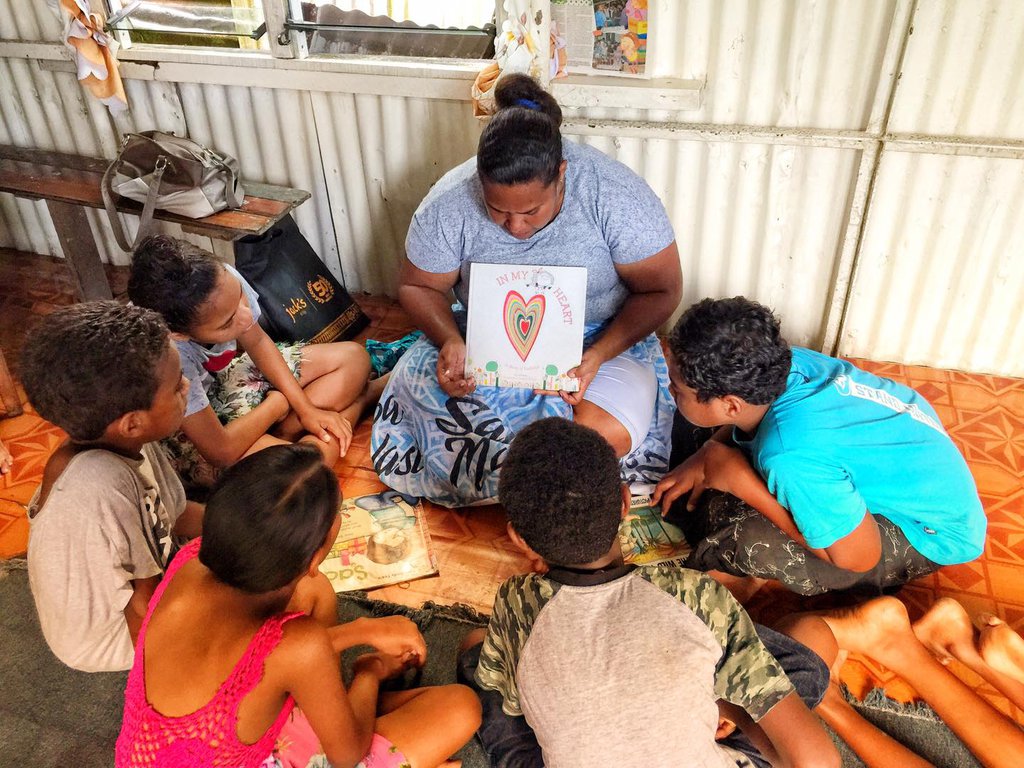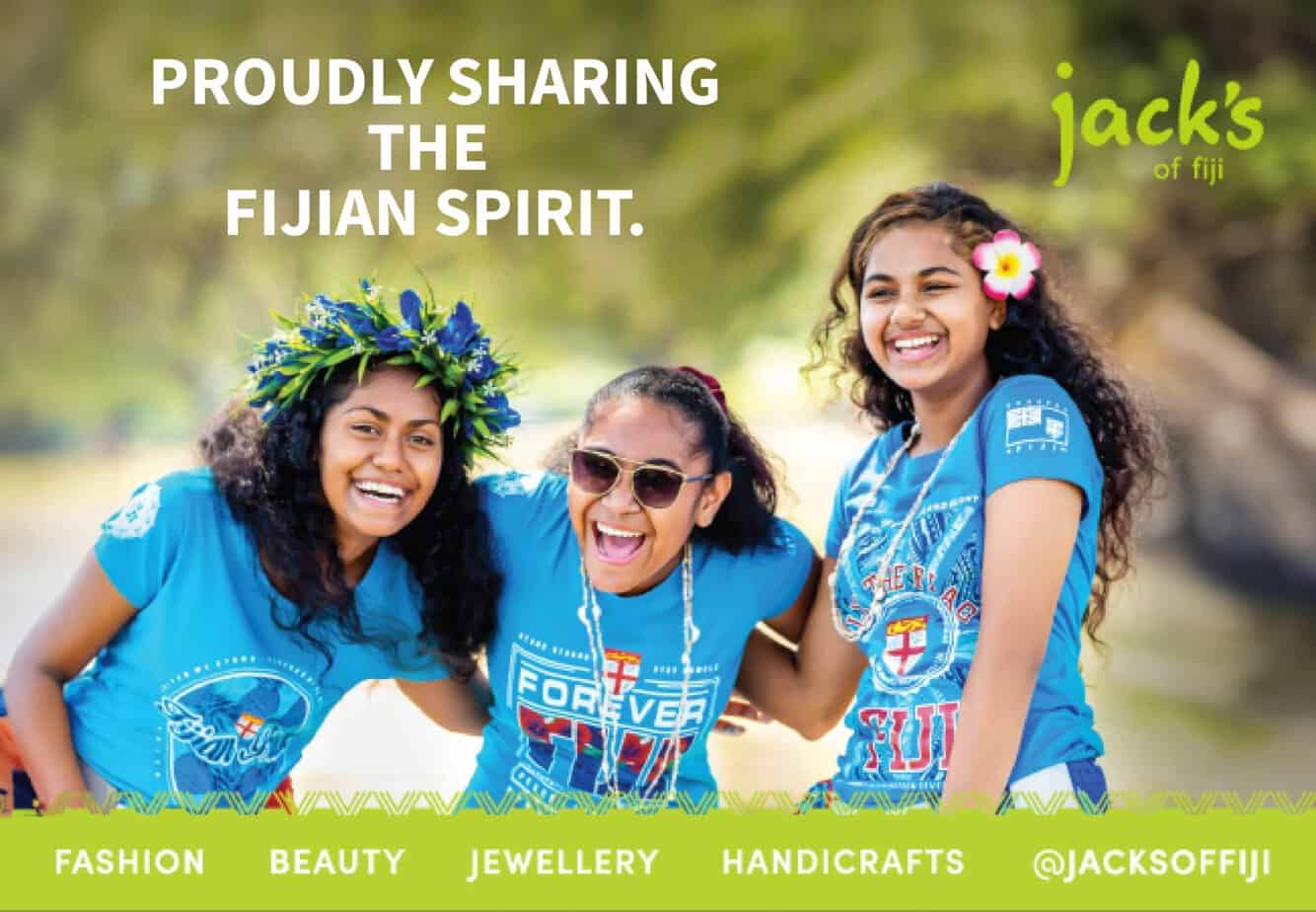By Samantha Magick
“Our children are valuable and we have the responsibility to ensure that they are educated; that they have the basic needs to go through school.”
That’s the firmly-held belief of Vunilagi Book Club founder Mariana Waqa, who for four years has worked with a group of volunteers to bring high-quality books and literacy programs into a sprawling Suva informal settlement.
The settlement in which they work, Nanuku, is just three kilometres from Suva’s city centre and a stone’s throw from the University of the South Pacific. USP academics Nicholas Halter and Anawaite Matadradra have written of the challenges that face the people of Nanuku: most live below the poverty line and suffer social stigma and discrimination for that reason. Few residents have toilets, running water or electricity. “The settlement can also be dangerous,” they write, “with regular instances of substance abuse, violence and criminal activity. In some cases, families can leave the settlement suddenly, forced by financial difficulties or domestic crises to move.”
While Fiji’s literacy level is high, estimates range between between 91% and 99%, the story is different for many children in informal settlements. In Nanuku, “in some cases, children above the age of six were struggling to recognise phonics, and children as old as fourteen were unable to read independently,” Halter and Matadradra write, attributing this to overcrowded classrooms, inadequate school libraries and the children’s living conditions.
Mariana Waqa started the Vunilagi Book Club after she spent seven weeks surveying the settlement for Uniting World. “During that time I saw not only the poverty within the community, but I saw so many children not going to school, being at home. I didn’t see one children’s book in any of the homes that I went into, so that was just something that was in the back of my mind.”
Back in Australia where she was studying at the time, she realised “my time here wasn’t finished.”
She started Vunilagi Book Club with the idea that “books take you places. It’s not just about reading so you can pass your English exam, but that reading is actually a key to information.”
Initially Waqa got the support of her community in Melbourne to help buy high quality books she had selected and plotted on a spreadsheet. ”Then we began in February 2018. The idea was really simple, it was just to spend some time reading to the children, with the children, and it evolved from there.”
The initiative required perseverance. The initial uptake was slow and some community members told her, “look we know you have good intentions, but this kind of stuff is just not going to work in a community like Nanuku. The children are not interested in what you’ve brought; we don’t want to waste your time and their time as well.”
Waqa asked for more time, and after a few months, “it just caught on.”
“I wanted to create a safe space where the children are welcomed despite whatever ethnic group religious group they came from; that when they entered into the Vunilagi space in that church that they were welcomed , valued and that they could understand they could come even with their limitations and it wouldn’t be an issue, we would just take them.”
Now in its fourth year of operations, the program has evolved. They still meet every second Saturday morning in a small, corrugated iron church in the settlement. COVID has changed the way they are doing things. Prior to the pandemic and social distancing requirements, groups of 40 or 50 children would gather in the small space. Now they meet in smaller age groups for scheduled periods.
The impact of COVID on family incomes also meant that Vunilagi stepped in to help provide meals last year, after learning that many children were not going to school because they didn’t have school lunches. Vunilagi appealed to its supporters and for about three months provided 30-35 children with meals, Monday to Friday.
“That was a huge achievement for us last year… the children got fed and the children went to school and for us that was the goal.”
Vunilagi has also been able to support two reading clubs, one in Koromakawa Vanua Levu and the other at Banaban Primary School, as well as donate books to many other communities. Value City and PNG Books for Kids have provided books to the club, many of which are redistributed to other communities.
Volunteers usually come through Vunilagi’s Facebook page, and a large number of USP students have engaged. However Waqa says securing a steady group of volunteers has been one of their challenges.
This year, Waqa hopes to register the group in order to formalise some processes, and potentially tap into some funding.
“One of my messages from the beginning was that books open up the world to us,” she says.
And what are their favourite books to read? “Definitely anything that rhymes for the younger children or anything that you can sing or that has fun interactive things you can do on the pages of the book,” she says.
“Dr Seuss is definitely one that is popular. One of the visiting volunteers from the Solomon Islands, he came in and he was able to make a beat to Green Eggs and Ham, and he got one of our fluent readers to read…and the kids just went wild in there…If we want children to read and love reading, we have to open up what reading is.”
Waqa says the Vunilagi Book Club has had reason to be “so, so proud this year.”
“Many of our members are prefects in their different classes, and Nanuku had its first Head Boy at John Wesley School. Alosio is one of our top readers and he got elected as head boy of the primary school there.
“For us any kind of achievement for the children is a huge achievement for us.”
Once registered, Waqa would love to see Vunilagi Book Club evolve into a platform that promotes “not only literacy, but also promotes the value of children.
“Nanuku is just but one community. They’re so blessed that we have been operating in there and even they say that themselves, because the need in this country for our children to read is huge, it’s not only huge, it’s really sad.
“Our current education system is allowing these children to be sent from class to class without reading. You know these young people come in with the passion, they want to know and learn, but they haven’t been given the chance to and it’s not fair, it really is an injustice to the future of our country.”
First published on May 29, 2021



